|
“The parish is the presence of the Church in any given territory, an environment for hearing God’s word, for growth in Christian life, for dialogue, proclamation, charitable outreach, worship, and celebration.” —Pope Francis (Evangelii Gaudium, 28)
Parish life is the lifeblood of the Catholic Church. Local communities allow faith to be ignited, passed on to children, and developed throughout one’s life. However, pastors, chaplains, or any member of the faithful rarely discuss how one moves to a new parish and continues their deepening relationship with Jesus Christ. For example, I just graduated from college with my undergraduate degree and moved away from my incredibly Catholic college. While I was an undergrad, I was heavily involved in our campus ministry as a lay ecclesial minister who helped students transition from high school to college. This changed considerably with graduation, as I went from being incredibly involved and busy in “Church” activities to having no structure. Although I joined a new parish immediately, it took some time to feel connected to God and the community. Going through the summer, I attended Mass regularly and made efforts to meet people. However, I still felt a disconnect. Knowing no one and trying to readapt my prayer life for life after college was incredibly difficult. Eventually, I settled into a new personal prayer life, reestablishing my connection with the Lord. Despite this, there was still no connection with the greater parish community. This changed when my fiancé and I attended our parish’s yearly “Fiesta” celebration. Celebrating the parish's diverse ethnicities and artistic pursuits, I was not only able to meet more people around my age and stage of faith, but I was also able to connect with ministries that connected with me. Specifically, I joined my parish’s Knights of Columbus Council and became a seventh-grade Confirmation catechist. Becoming a catechist was what helped me immerse myself in the parish community. Not only was I able to meet fellow parishioners who wanted to become more holy, but also, as a group, we wanted to help the parish youth foster their personal relationship with God. For example, starting Confirmation preparation classes with the seventh graders was incredibly eye-opening. Not only could I show them that young people care about faith, but the class also allowed me to share my passion for Jesus with others, just like I did as a lay ecclesial minister during my time as an undergraduate. Although when working with the seventh graders, it can be incredibly difficult to get them engaged, particular moments of curiosity or engagement help me see that they are desirous of a deeper relationship with God, or at the very least, they want to learn more about God. My new ministry as a catechist has helped me realize how much our personal prayer lives are integrated with the greater parish. The parish—its community of people and its connection to God in the sacraments—allows us to meet God in our everyday life, and it is through the parish that God calls us to new challenges to grow in relationship with Him. If you are new to a parish, I hope you will talk to people and get involved, because it is through service to the community that you begin to put down your roots and realize God’s presence in the parishioners around you.
0 Comments
It’s that time of year where students set off for college, some for the first time and some going far away from home. These students take on the challenge of continuing towards adulthood and the process of making their faith their own. This can be a difficult road filled with numerous temptations, stresses, and other challenges. As someone who attended Catholic school for most of my life, I found the transition to college difficult, especially when it came to my faith. I attended a large public university where few practiced Catholicism, and I felt very isolated. The people who I attended Mass with at the beginning of the year began to slowly drift away – going to other churches or becoming too busy with academic commitments. With my class schedule it was hard to make it to the Catholic Student Union events and join the camaraderie. While I adjusted well to college life, I felt alone in my faith. Everyone has different experiences when it comes to the transition into colleges. Whether you are entering college for the first time, a current student wanting to get more in tune with your faith, or even a parent or relative of a college student(s), I’ve compiled some tips about keeping up with your faith life that can be helpful: 1. Make friends who challenge you to be your best selfMake friends wherever you go on campus, but remain close friends with those who continually challenge you to be your best. Many of my closest friends at college weren’t Catholic, yet they held me to remain true to my faith and myself without peer pressure. Just as a spouse is to help his or her partner grow in faith, so too should your friends. 2. Get InvolvedWhether you join the Catholic Student Union or other groups on campus, make sure you are busy. Becoming involved lessens homesickness and other temptations. Enjoy your college experience! 3. Go to Mass every SundayMark it on your agenda. Make sticky notes. Do whatever you need to do so that you attend Mass each week. Experiencing Christ every week in the Eucharist renews us and gives us strength. Fortunately, as Catholics we usually have a variety of Mass times to attend, so take advantage of that! 4. Challenge yourself and set goalsRegularly make short-term and long-term goals, and then try to stick to them. These can be anything from attending adoration regularly, going to daily Mass, setting aside prayer or Bible-reading time, or even studying abroad, trying new foods, and accomplishing a certain academic achievement. 5. Find time every day to pray and appreciate the beauty around youDoing this helps strengthen your personal relationship with God. Plus, you gain a better appreciation for life and develop practices that will stay with you after college. It’s not easy, but it matters that you try. 6. Call your family and your close friends one or more times a weekThese people are important foundations in your life. Keep them updated on your life in college and be honest with them. Your family and friends are a support system when things aren’t easy. 7. Find a MentorYour mentor(s) can be an academic, club advisor, older student, or religious. These individuals in your life can help you navigate college, your future, and strengthen your faith. (Plus letters of recommendation and internship/job advice are certainly helpful!) 8. Talk to people at your local church and get involved in the Mass Become a part of your new parish community at college. Get to know others around you to have that “home away from home.” This will help you make good life-long friends. Plus, getting involved in the Mass helps you become ingrained in the community while deepening your faith. 9. Search for a church you feel most comfortable going toFeeling at home in your college parish is important. Find a church that makes you want to go to Mass. The nearest church may not be your favorite – so explore! My favorite parish in my college town was about 15 minutes away and felt just like my home parish. 10. Find people to go to church with you Having someone to go to church with incentivizes you to go to Mass. Plus, it’s always fun having a buddy. Keep each other accountable! Make it a group event and have brunch or dinner after Mass, too! *This post was originally published on September 8, 2014. In 2020, when the COVID-19 pandemic was beginning in earnest, there were many questions about what would happen in the Catholic Church if people’s lives were upended in such profound ways. In many respects, we may not truly understand the ramifications of a worldwide change in perspective until we can look back at it. That being said, with “the return to normal,” the opening up of parishes, and the re-starting of activities have come questions about what we have learned from this pandemic experience. I think many of us re-learned that community and connection are important. The question that seems to be challenging folks is: Now that we can start to plan to meet in person, what should our parish activities look like? For the past two years, I have had the pleasure of doing Master’s work in Church Management at Villanova University. Most of my studies occurred during this pandemic and offered a unique perspective of what effective parishes and communities have done to respond to a sudden shift in the assumptions of what the Church in the United States looks and acts like. Most of the parishes that were able to weather the storm well were able to do so because they were intentional about what community is and should be. They did not assume that a parish had to be only the functions that happen within a city block or a singular location, but rather can have an online presence and remotely meet people where they are. I think of my friends and colleagues with young families or who have long commutes and the complications that our parishes can impose on people who would like to be involved, but cannot be due to the lives that they lead. Are we as church leaders imposing certain restrictions for the members of the parish to be able to build a community? As active Catholics, our job is to share the joy of the Gospel that we hopefully have experienced with others. The pandemic has proven that there is a desire for community and for Christ in people’s lives despite barriers. However, we as Catholics also need to acknowledge that if we “are now just going back to normal,” we are also going back to the normal of an older and smaller church. We need to see the pandemic not as a temporary event, but rather the opportunity that God has given us to think creatively and reflectively over the past year about what it means to be Catholic in the United States. Similarly, what is our hope for the future of the Catholic Church in the United States? If we do not think about these things, we risk becoming a closed community for only those who are already active members. There were many challenges during the pandemic, but there were opportunities to grow and learn for our Church as well. My hope is that we take the lessons that we have learned, both positive and negative, about what it means to be in a community and to be community leaders and apply those findings in healthy, creative ways going forward. For more resources on navigating COVID-19 as a community, please click here. The call to evangelize is at the heart of our Christian faith. We are evangelizers at our core; it makes up our very identity. And yet, if I were to ask most people sitting in the church pews at Mass if they are evangelists, they would probably shake their heads and identify themselves in other terms: vocation, occupation, role in the family, country of origin. A professor of mine in graduate school put it starkly when he said most of the laity are experiencing an “identity crisis.” We do not know, or have forgotten, who we are as members of the Body of Christ and what our role is within it. Today, Pope Francis echoes his predecessors in reminding the laity of their call to become missionary disciples. This is a call that originates from God Himself, with the Risen Christ saying to his beloved disciples before ascending to the Father, “Go and make disciples of all nations.” These words reverberate ever more powerfully for us today. Though the universal call to holiness and a greater emphasis on evangelization has roots in the papacy of Pope Paul VI and within the Second Vatican Council, Pope Francis calls the concept of sharing our encounter with Jesus Christ using the means available to us “missionary discipleship.” It is a profound concept that Pope Francis assures us is relatively simple. “The new evangelization calls for personal involvement on the part of each of the baptized,” he writes in Evangelii Gaudium. “Every Christian is challenged, here and now, to be actively engaged in evangelization; indeed, anyone who has truly experienced God’s saving love does not need much time or lengthy training to go out and proclaim that love.” Once we have encountered Jesus Christ and His merciful love, we are called to bring that encounter to others, therefore playing a unique role in salvation history. Several of my colleagues from the Catholic Apostolate Center and I were honored to discuss “The Call to Missionary Discipleship” at the Catechetical Day hosted by the Archdiocese of Washington in late October. We discussed that, as baptized Christians, we have been given the grace of Jesus Christ in order to respond to the both daunting and exhilarating call to “go out to all the nations.” This understanding of evangelization subsists not only on our personal encounter with God’s transforming love, but also on our proclamation of it. It is not enough to encounter Jesus Christ for ourselves. Like the woman at the well, we must go forth telling anyone who will listen, “Come see a man who told me everything I have done.” Below are five practical tips we came up with for living out the call to be a missionary disciple. What are we missing? Feel free to add to our list by commenting on our post below! 1. Collaboration If we are to be missionary disciples, we must be people of collaboration. This does not mean that we attend endless meetings, join committees, or fill every moment of our schedule. We propose collaboration from the beginning, which means a willingness to begin an endeavor communally with others—recognizing the valuable role each person has. Collaboration must happen among, for, and with those in our parishes and organizations. It requires openness to the promptings of the Holy Spirit, humility, dialogue, and flexibility. How can you learn from others in your community, parish, family, workplace, or neighborhood? How might God use the gifts and talents of a diverse group of people to strengthen His kingdom on earth? 2. Technology As followers of Jesus Christ, we are called to use the tools of this present age in order to re-present the Gospel to our world in a way that is innovative and re-invigorated. A major tool today that can be used to spread the Gospel message is technology, especially the internet. We can share digital content that is valuable, such as Scripture, the Catechism, and Papal and Conciliar documents, in order to become better informed about our faith. Technology can also create a new type of community, enabling us to connect with others and share information in a way that is cost-effective and not limited to physical proximity. What are some ways you can use technology to spread the Gospel and help build a civilization of love? 3. Community/Parish Life We do not exist in isolation. As Christians, our work of evangelization will not bear much fruit if we do it alone. Our community, especially our parish, strengthens us and equips us to go outside our church walls in order to evangelize. It is within the parish that we receive the sacraments, especially the Eucharist, which gives us the grace of Christ Himself. In order to be effective as missionary disciples, we are called to have a vibrant sacramental life strengthened by our communities. How does your parish community strengthen you for your mission of discipleship? 4. Relationships Relationships outside of the parish are also crucial to missionary discipleship. As mentioned above, we do not exist in isolation. Do we have a mentor or spiritual guide helping us to grow in our faith life? Do we have relationships or friendships that hold us accountable and push us to become better witnesses of faith? By developing faith-filled relationships and surrounding ourselves with mentors and guides, we ensure that we continue to grow in our role as missionary disciples. 5. Prayer Prayer is crucial not only to a life of missionary discipleship, but to the Christian life overall. Prayer is the foundation for our relationship with God, inviting us to get to know ourselves more deeply through his gaze of love and mercy and helping us to better understand our specific mission in building up the Body of Christ. Prayer can, and should be, both personal and communal. God speaks in the silence of our hearts, as well as through others. Are we carving out time in silence to converse with God and hear the promptings of the Holy Spirit? Do we read Scripture, pray the Rosary, journal, sing hymns, or reflect? By having an active prayer life, we will be better equipped to become fruitful missionary disciples. The call to missionary discipleship is both daunting and exciting, and we can live it out at any time. As Pope Francis wrote in Evangelii Gaudium, “Being a disciple means being constantly ready to bring the love of Jesus to others, and this can happen unexpectedly and in any place: on the street, in a city square, during work, on a journey.” Above, I’ve listed a few tips to fulfilling our call to become missionary disciples. What would you add to the list? Editor's note: This post was originally published in November 2017. Since its publication, the Catholic Apostolate Center has expanded its vision and resources for living as missionary disciples. Please see our "Living as Missionary Disciples" resources page and our 2017 e-book Living as Missionary Disciples: a Resource for Evangelization that was produced in collaboration with the USCCB. “The word of God nourishes both evangelizers and those who are being evangelized so that each one may continue to grow in his or her Christian life” – National Directory of Catechesis Over the last 40 years, the United States Conference of Catholic Bishops (USCCB) has especially recognized the importance of catechists in the process of evangelization by reserving the third Sunday in September as “Catechetical Sunday.” Catechetical Sunday commemorates and celebrates the ministry of formal catechesis, which is the systematic teaching of the tenets of the Catholic faith in order to help others know more about God and his Church. This ministry has had a significant role in my life over the past four years and across two different dioceses. There is something amazing about trying to explain the Old Testament prophets to a group of 6th grade students, a majority of whom has never heard the likes of Jeremiah, Isaiah, Elijah, etc. I love seeing the excited faces of students that either know or are interested in the subject of my teaching, while the blank ones challenge me to find compelling ways to make the faith a living part of their lives. On Catechetical Sunday, parishes, including where I have served, have a particular ritual: before the recessional at the end of Mass, the celebrant asks all who are called to serve as catechists to stand and receive a blessing for their work throughout the year. This serves two purposes: it helps the catechist understand the importance of their teaching role in the parish and also serves as a moment of reflection for the rest of the congregation. The influence of a catechist on a young life cannot be understated. Below are a few tips I’ve learned throughout my time as a catechist that can help those interested in pursuing the ministry of catechetical formation.
Catechetical Sunday reminds us of our individual roles in the evangelization of the baptized. In our small way, my fellow catechists and I—men and women from all walks of life and individual faith journeys—try to sow the fruits of faith for the next generation of disciples. Pulling from my toolkit, I will leave you with a blessing for catechists: “Lord God, source of all wisdom and knowledge, you sent your Son, Jesus Christ, to live among us and to proclaim his message of faith, hope, and love to all nations. In your goodness bless our brothers and sisters who have offered themselves as catechists for your Church. Strengthen them with your gifts, that they may teach by word and by example the truth that comes from you.”
The call to evangelize is at the heart of our Christian faith. We are evangelizers at our core; it makes up our very identity. And yet, if I were to ask most people sitting in the church pews at Mass if they are evangelists, they would probably shake their heads and identify themselves in other terms: vocation, occupation, role in the family, country of origin. A professor of mine in graduate school put it starkly when he said most of the laity are experiencing an “identity crisis.” We do not know, or have forgotten, who we are as members of the Body of Christ and what our role is within it. Today, Pope Francis echoes his predecessors in reminding the laity of their call to become missionary disciples. This is a call that originates from God Himself, with the Risen Christ saying to his beloved disciples before ascending to the Father, “Go and make disciples of all nations.” These words reverberate ever more powerfully for us today. Though the universal call to holiness and a greater emphasis on evangelization has roots in the papacy of Pope Paul VI and within the Second Vatican Council, Pope Francis calls the concept of sharing our encounter with Jesus Christ using the means available to us “missionary discipleship.” It is a profound concept that Pope Francis assures us is relatively simple. “The new evangelization calls for personal involvement on the part of each of the baptized,” he writes in Evangelii Gaudium. “Every Christian is challenged, here and now, to be actively engaged in evangelization; indeed, anyone who has truly experienced God’s saving love does not need much time or lengthy training to go out and proclaim that love.” Once we have encountered Jesus Christ and His merciful love, we are called to bring that encounter to others, therefore playing a unique role in salvation history. Several of my colleagues from the Catholic Apostolate Center and I were honored to discuss “The Call to Missionary Discipleship” at the Catechetical Day hosted by the Archdiocese of Washington in late October. We discussed that, as baptized Christians, we have been given the grace of Jesus Christ in order to respond to the both daunting and exhilarating call to “go out to all the nations.” This understanding of evangelization subsists not only on our personal encounter with God’s transforming love, but also on our proclamation of it. It is not enough to encounter Jesus Christ for ourselves. Like the woman at the well, we must go forth telling anyone who will listen, “Come see a man who told me everything I have done.” Below are five practical tips we came up with for living out the call to be a missionary disciple. What are we missing? Feel free to add to our list by commenting on our post below! 1. Collaboration If we are to be missionary disciples, we must be people of collaboration. This does not mean that we attend endless meetings, join committees, or fill every moment of our schedule. We propose collaboration from the beginning, which means a willingness to begin an endeavor communally with others—recognizing the valuable role each person has. Collaboration must happen among, for, and with those in our parishes and organizations. It requires openness to the promptings of the Holy Spirit, humility, dialogue, and flexibility. How can you learn from others in your community, parish, family, workplace, or neighborhood? How might God use the gifts and talents of a diverse group of people to strengthen His kingdom on earth? 2. Technology As followers of Jesus Christ, we are called to use the tools of this present age in order to re-present the Gospel to our world in a way that is innovative and re-invigorated. A major tool today that can be used to spread the Gospel message is technology, especially the internet. We can share digital content that is valuable, such as Scripture, the Catechism, and Papal and Conciliar documents, in order to become better informed about our faith. Technology can also create a new type of community, enabling us to connect with others and share information in a way that is cost-effective and not limited to physical proximity. What are some ways you can use technology to spread the Gospel and help build a civilization of love? 3. Community/Parish Life We do not exist in isolation. As Christians, our work of evangelization will not bear much fruit if we do it alone. Our community, especially our parish, strengthens us and equips us to go outside our church walls in order to evangelize. It is within the parish that we receive the sacraments, especially the Eucharist, which gives us the grace of Christ Himself. In order to be effective as missionary disciples, we are called to have a vibrant sacramental life strengthened by our communities. How does your parish community strengthen you for your mission of discipleship? 4. Relationships Relationships outside of the parish are also crucial to missionary discipleship. As mentioned above, we do not exist in isolation. Do we have a mentor or spiritual guide helping us to grow in our faith life? Do we have relationships or friendships that hold us accountable and push us to become better witnesses of faith? By developing faith-filled relationships and surrounding ourselves with mentors and guides, we ensure that we continue to grow in our role as missionary disciples. 5. Prayer Prayer is crucial not only to a life of missionary discipleship, but to the Christian life overall. Prayer is the foundation for our relationship with God, inviting us to get to know ourselves more deeply through his gaze of love and mercy and helping us to better understand our specific mission in building up the Body of Christ. Prayer can, and should be, both personal and communal. God speaks in the silence of our hearts, as well as through others. Are we carving out time in silence to converse with God and hear the promptings of the Holy Spirit? Do we read Scripture, pray the Rosary, journal, sing hymns, or reflect? By having an active prayer life, we will be better equipped to become fruitful missionary disciples. The call to missionary discipleship is both daunting and exciting, and we can live it out at any time. As Pope Francis wrote in Evangelii Gaudium, “Being a disciple means being constantly ready to bring the love of Jesus to others, and this can happen unexpectedly and in any place: on the street, in a city square, during work, on a journey.” Above, I’ve listed a few tips to fulfilling our call to become missionary disciples. What would you add to the list? To learn what the Catholic Apostolate Center is doing to form missionary disciples, click here to learn about Apostles on Mission. Being comfortable with dependence is a struggle for me. I absolutely hate to be a burden on anyone. In fact, my family constantly reminds me that it’s OK to ask for assistance and guidance. Several years ago in college, for example, I began to have car troubles that created a need for help with transportation. My parents reminded me that my friends would be there for me to lean on, reassuring me that they would in fact be glad to help. I was pleasantly surprised when each friend I asked for help gave a resounding, “Of course!” Self-reliance seems to be a virtue valued by society because we are taught that it is better to give to others than to take. But when taken too far, the negatives of this quality actually erode our trust and relationships with other people, as well as our desire for God. In the Acts of the Apostles, we learn how the members of the early church relied upon one another and became stronger because of this support. We are humbled when we rely on others and on God, but we are also brought closer together as a result. Recently, I read about Jabez’s prayer in the Bible. Jabez calls out to God asking, “Oh, that you may truly bless me and extend my boundaries! May your hand be with me and make me free of misfortune, without pain!” Jabez turns to God in prayer, showing strength in dependence on God. Dependence is synonymous with prayer. It requires humility, an acknowledgement that we need God to help us grow and become more like him. 1 Peter 5:7 says, “Cast all your worries upon him because he cares for you.” God wants us to ask for his blessings in prayer, to strive for big goals and dreams, not settle for mediocrity. But in all we do, we are called to glorify the Father, just as Christ did on earth. Although not every one of our prayers is answered in the way we ask, God does hear each one and answers them in some way. Sometimes, an answer may come in the form of hardship or suffering. Conversely, an answer may come in the form of silence. Other times, an answer may come as blessings, an “extension of boundaries.” Regardless of the outcome of our prayer, God invites us to depend on him in the midst of any situation we may find ourselves in – whether we are in a position of strength or weakness. With time, experience, and prayer, God continues to show me how to reach out to others as resources and guides. Over the summer, I began to pray something like Jabez’s prayer. I had asked God for ways to help me become more connected to my parish, and he responded by having a pastoral associate invite me to help form a young adult ministry in the parish. I reached out to other young adult ministry leaders who offered their suggestions and advice, and they put me in contact with other diocesan leaders who were wonderful resources as well. Several friends also offered their support for the ministry and have helped to form a core planning team. Since the ministry had its first event in September, I encounter someone new looking to join or share the ministry with someone else several times a week. We’ve even had other parish ministries ask how the young adults can help be part of their evangelization missions. Our territory is enlarging, as Jabez would say. God, and other people, want to help us and be a part of our lives – we just have to ask. Questions for Reflection: Can you think of a time when you had to rely on the generosity or goodwill of others? How did it make you feel? I remember the first time I experienced Eucharistic Adoration. During my first week of college, I was walking back to my residence hall after grabbing dinner with some friends of mine. As we walked back into our dorm, one smiling upperclassmen was talking to some other freshman in the lobby. He saw us and made a beeline. I was only five steps away from the elevator, maybe he wouldn’t catch me. Alas, the elevator did not come in time and we ended up chatting with this friendly upperclassman. As he introduced himself, he also invited us to praise and worship Adoration that night. He promised us there would be a ton of good food afterwards. Though there were posters about this event throughout the dorm and we knew about it, we did not previously plan on attending. However, after being personally invited, being called by our names, we decided to give it a try. It was one friendly person’s invitation (and yes, the promise of food) which forever changed my faith-life. After going to Adoration and the fellowship held immediately afterwards with friends, I was hooked. College students and young adults are in a unique place in their faith journey. Many are seeking answers to some pretty big life questions. As the Church, we have the joy of being called to reach out to these sometimes marginalized members of our community and invite them to experience the love of Christ. Yet, how do we do that? As a college student myself and someone who ministers to undergraduate students, I have found that there is one way in which your parish can successfully engage Catholic young adults and college students. All college students and young adults seek a place to belong. And what better place is there than the Church of Jesus Christ? The parish community can seek to provide different opportunities for college students and young adults attending the parish to get together for fellowship. Having faithful Catholic friends your age who provide you with support on your spiritual journey is indispensable. The Christian life is not individualistic in nature, but one marked by interdependence. Being a parish which hosts events that foster communion between young adults is a key way to keep young adults engaged in parish life. Some parishes successfully do this by hosting mini-Theology on Tap series at a local restaurant, or something as simple as hosting praise and worship Adoration followed by a meal. These are just two examples of how you can help young adults feel like they belong in your parish community and experience Christian fellowship with their peers. One principle tip is to host events which have a liturgical aspect (pray compline together or have a holy hour) and a fellowship aspect (do not underestimate the power of food!). Yet, you might be thinking, there are no college students or young adults currently active in my parish! Pope Francis might have some wisdom to share with us. During Pope Francis’ journey to Brazil for World Youth Day in 2013, he told an assembly of bishops that "we cannot keep ourselves shut up in parishes, in our communities, when so many people are waiting for the Gospel.” Each baptized member of the parish community has a responsibility to be hospitable and welcoming. Each member of the parish community must be marked by their missionary zeal. Evangelization is not simply the job of the parish staff, but the calling and the joy of each Christian. Hence, it is your calling, not somebody else’s, to reach out to inactive college students or young adults and invite them back to the parish so that they can experience the love of Jesus Christ. This involves each person in the parish calling students by name. It was that simple invitation which brought me into regularly participating in the life of the Church. This responsibility, this call of each Christian to invite students and young adults by name, also becomes one of the greatest joys. *This post was originally published on our blog on April 14, 2016. Although I recently graduated from The Catholic University of America, I frequently find myself back at my alma mater for various events and activities. Even more frequently, as I look around, I am reminded that the usually vibrant and bustling campus is now much more subdued and calm: it is summer in Washington, D.C. and the university seems to be an empty nest. As a former student, I’m free of the academic schedules and obligations that have dominated my life until now. I sometimes feel as if I’ve taken on a new identity. I am more conscious that the direction of my life rests squarely in my hands.
This is especially true as I begin to look for a new parish community and cultivate my faith as an adult. In order to benefit from all the Church offers spiritually, personally, and materially, I need to actively seek out and choose opportunities to continue to grow in my faith each and every day. While my time as a student was blessed with high exposure and easy access to the various ministries of the Church around campus, now that I have graduated I must seek new sources of spiritual nourishment closer to home or work. As disciples, this is something we are all called to do. Ministries and resources for adult faith formation, such as those found at the Catholic Apostolate Center or in our local parishes, ensure that we continue to grow in our faith. The places where I grew up remain open for me to return to, but now I look to places that are more cohesive with my current location and daily schedule. It might be unsettling having to look for and choose a new spiritual home. As is the case for starting at a new school or moving to a new neighborhood, the process of making friends, learning the culture, or finding support systems begins anew. While potentially uncomfortable, doing these things is a necessary step to adapt and thrive while laying down new roots. The same goes for the spiritual life. Finding ministries to join in a new parish will be necessary in order to make the most of a new spiritual home. As stated in Christefideles Laici, “the parish is called to instruct its members in hearing God's Word, in liturgical and personal dialogue with God, in the life of fraternal charity, and in allowing a more direct and concrete perception of the sense of ecclesial communion and responsibility in the Church's mission.” It is within the context of the parish that we are able to continue to grow in our faith. There is much diversity in the Catholic church resulting in differences in the parishes and ministries around you. Perhaps the atmosphere in one parish is more subdued or the community in another is less tightly-knit that what you’re used to. That’s okay! The life of the parish depends on the contribution of its spiritual family. We are all called to participate in the life of our parish. As we read in Apostolicam Actuositatem, the Decree on the Apostolate of the Laity, “As far as possible the laity ought to provide helpful collaboration for every apostolic and missionary undertaking sponsored by their local parish.” Do not be shy to attend a new Mass time with a different liturgical or musical character. Parishes offer many resources to the best of their ability, not just to the local church, but the greater community; the Christian life is not one of isolation! By taking advantage of the spiritual treasures of a parish, you not only learn more about yourself and your spiritual needs, but you’ll inevitably meet others seeking to do the same. Introducing yourself and taking the time to share ministerial or social experiences (and contact information) will help you to be a more fulfilled and involved member of the parish. These are just a few of the many ways to plant new spiritual roots after a transition. A good place to start a more detailed search can also be done on a diocesan website. The bishop and his staff, as well as the parish offices, do not need to be distant or removed from your daily life, but can help you become comfortable and connected in the local church. In my own search, I began by looking for parishes near my apartment and work before reviewing their websites for a snapshot of the life there. I would venture out for a Mass I could attend and get a feel for how vibrant the congregation worshiped with, served alongside, and supported each other. Above all, I needed to feel welcome! My search eventually ended, but my life as a member of my new parish is just beginning. Now it falls to me to make others feel welcome and engaged in this spiritual family of ours. Just as the Christian life is not lived for the self, so too must we always strive to serve wherever there is a need and encounter others wherever they are in life. By remaining involved in the life of the parish, may each of us continue to grow in faith and so better respond to the dismissal at the end of Mass to “go and announce the Gospel of the Lord.” Question for Reflection: How can you use your gifts and talents to participate in or start a ministry in your parish? What can you do to make others feel welcome? Click here to read more from Thomas about making others feel welcome in the Church. The story of Christmas illustrates that there are no perfect families (or parishes) but we can hope to be a holy one. Part of becoming a holy family at Christmas means turning our attention to the spiritually lost among our family and friends. Here are a few things to keep in mind as we look to welcome disconnected Catholics to our churches and homes this season. Make Room for the Lost and Lonely For some people walking through the church doors, the Christmas season is a difficult and lonely time, a reminder of the families they don’t have. How do we show hospitality to those without a human family? If you are on a church staff or volunteer, slow down and consider the place you are making for those who feel lost and alone. You could, for example, make sure that the elderly and handicapped are able to find seating appropriate to their needs. Or, personally invite those who are alone to join in any parish fellowship that might be happening after Mass. Perhaps you could even invite a few of these people to bring up the gifts during Mass. A special role in the Mass during this important liturgical season can show those who feel unloved how honored we are to have them as members of our parish family. The goal is not to expose or make a scene around these types of parishioners, but to consider their needs and communicate that they are valued. Make Occasional Visitors Feel Loved, Not Judged For those coming to church at Christmas for the first time in a long time, many already carry a mild feeling of guilt that they don’t go to church regularly and expect to feel a little judged. Let us welcome these occasional visitors with open arms and encourage them to return by modeling the joy of the Lord through our actions. Joy is persuasive. If we let the love of Christ beam through us this Christmas season it might just be enough to help these occasional visitors desire more frequent encounters with our Lord in the Mass. Give a Gift to the Poor The Christmas gift-giving tradition began with St. Nicholas giving a gift to a poor family. While many church budgets are spread thin during this time of year, consider making room in your budget to help the church provide a gift to a local charity or foreign mission. Not only is this celebrating the authentic tradition of Christmas presents, it a sign of generosity that encourages church communities to remember their brothers and sisters whose basic material needs often go unmet. When we demonstrate charity as a parish family, we send a powerful message about what it means to come together on Sundays. Our faith is what is called a “corporate faith,” meaning, that we are all working toward salvation together. For those who have never been to Mass, or haven’t been in a long time, demonstrating parish-wide charity can show how much we as a community care about individual members of the body of Christ who are in need. For those who feel unwelcome or unworthy of joining the Church, communal Christian charity is a great way to demonstrate that we want them with us on Sundays and that we will work together to make sure their needs are provided for. Evangelize Through Beauty The Advent and Christmas seasons are rich with light and melody, in both a sacred and worldly sense. Advent is the liturgical season when we encounter beauty in the sparseness and fragility of the barren winter. The Christmas octave and season is full of color and sounds. Beauty has the effect of lessening our defenses and heightening our receptivity to the message of Jesus. What are the elements of beauty present in your church and home? How can you enhance them? Consider playing some soft sacred music in your home during the holidays or decorating your home with a nativity scene or poinsettia plant. It doesn’t take much, just something small to celebrate what a miraculous time Christmas is for all Christians. Jesus was born in an “irregular” family situation - not a perfect family by worldly standards, but a holy family in God’s plan for the world. Would we Christians today recognize and welcome this same Jesus? He is among us. He is knocking at the doors of our hearts, homes, and churches in the form of family, friends, and strangers in need of peace and hope. Let us welcome Jesus in! Despite the overwhelming presence of Christmas decorations and holiday spirit in December, many people still gloss over Advent. They might notice the Advent wreath at Mass or the change in liturgical colors, but before they are able to ponder what any of that really means it is Christmas Day, the Son of God has been born, and they have done nothing to prepare for Him.
As a young teenager, it would usually take me a week or two to adjust from the Thanksgiving mindset to the Christmas mindset and by then it was already Gaudete Sunday, the third Sunday in Advent. I would find myself saying, “Father gave a great Advent homily today, I should definitely think about these themes this week,” or “Advent might be a good time to start praying more regularly.” Despite these thoughts, I would not think about the homily after Sunday and rarely tried to increase my prayer life during Advent. This seems typical for a lot of people. We come up with great ideas during Mass and then when we go home and promptly find other things to be concerned about. If we think about it, this is probably why we get reminded year after year of the ‘true meaning of Christmas’ … because despite knowing what Christmas is about, we don’t often take the proper steps to prepare our hearts and minds for the event. And yet, Advent is the perfect time to reignite our faith and start anew. It is a time to practice the virtue of patience and to prepare ourselves to be open and ready for the coming of Christ. As Pope Francis said on the first Sunday of Advent in 2013, it is also a time to hope: "Just as in each of our lives we always need to begin again, to get up again, to rediscover the meaning of the goal of our lives, so also for the great human family it is always necessary to rediscover the common horizon toward which we are journeying. The horizon of hope! This is the horizon that makes for a good journey. The season of Advent, which we begin again today, restores this horizon of hope, a hope which does not disappoint for it is founded on God’s Word. A hope which does not disappoint, simply because the Lord never disappoints! He is faithful! He does not disappoint!" Pope Francis is calling us to reconnect with the beautiful mysteries of Advent, to rediscover ourselves, our faith, and the purpose of family. He is asking us to rediscover hope. Hope is not easy to have by itself, but it is easy to find when we prepare ourselves and when we seek to understand the mysteries of Christ’s birth. But preparing ourselves for the Lord’s coming is easier said than done. There are many ways that we can embrace this Advent season with our parish communities, friends, and families. Consider trying out a few of these methods this year:
These are just a few suggestions to help you on your Advent journey. There are of course many ways to prepare for the birth of our Lord. The important thing is to prepare. Let us challenge ourselves each and every day to open our hearts to the Lord. Let us embrace this Advent season so we might be ready to receive the Son of God on Christmas morning. For more information on Advent, check out our Advent Resources page here. Nicholas Shields is a Young Professional in Washington, D.C. One of the most exciting, profound, yet sometimes awkward and unnerving places of parish ministry involves welcoming new Catholics officially into the Church through what is called the Rite of Christian Initiation of Adults, or RCIA for short. Many parishes are now gearing up for the next season of RCIA, which generally runs from early Fall and concludes with the Easter Vigil (this year on April 15, 2017). Over the years, I’ve had the opportunity to serve and lead RCIA in a few parish settings and have been blessed to accompany some friends and family members through the process. But every year there are things I learn and need to be reminded of to facilitate a truly transformative time for the candidates and catechumens. Below, I’d like to offer some perspective, as well as a few pitfalls to avoid that have made a difference in the way the teams I’ve been a part of approach this important ministry. Speak their Language For those of us who grew up Catholic or actively learn and read about our faith, we become very familiar with the vocabulary and theology of the Church that is typically foreign and confusing to newcomers. Don’t assume people know what you are talking about, or what a word or acronym (even RCIA!) means. People are learning a new language of faith, which requires patience, clarity, and practice. Without patience and clarity, people feel alienated and lost, not impressed, and you risk having your faith come off as pretentious and antiquated, not living and effective. Teach Them to Pray Going off the last point, we should remember that prayer is the primary language of the faith. This is based in the ancient Catholic spiritual axiom, “Lex orandi, lex credendi.” The truth is, we assume people know how to pray, but prayer takes learning and practice, just like anything else. Prayer is necessary for living out the Catholic life beyond RCIA, but instead of just telling people to pray, we need to actively teach new Catholics how to pray by praying with them. Do some form of prayer together each week—the Rosary, Lectio Divina, a litany—to expose people to the richness of Catholic spiritual life. If we leave participants with anything, let it be the desire and ability to pray. Learn Their Story As passionate teachers of the faith, RCIA leaders often love to share their experience and favorite subjects about the Church and our faith. That’s important, but we often risk talking when we should simply be listening. Be mindful in giving the candidates and catechumens plenty of time to speak and share their story with one another, not just for a brief minute the first day, but also as part of an ongoing process that extends the whole course. Think Outside the Classroom Learning the content of the Catholic faith is essential, no doubt about it. But often our approach gives the impression that church teachings only live in the pages of textbooks. If all learning about the faith happens in the classroom, it has a tendency to stay there. Look for ways to make connections between Catholic beliefs and tradition and real action and practices. Learn about the corporal and spiritual works of mercy by scheduling time to go out as a team, do a few of them together, and then reflect on them. In Baltimore where I live and work, we are surrounded by some amazing Catholic historical and religious sites. We decided, “Why not incorporate that into our RCIA experience?” Instead of just reading about the saints, we planned field trips to the churches and homes of local saints. RCIA became a more memorable experience that expanded horizons and made people feel at home in their new faith family. Build a Strong Team Your most valuable asset is a dynamic and cooperative RCIA ministry team. I’ve heard of RCIA teams that actually actively disagree and challenge one another over church teachings in front of the class. Different personalities and gifts are important, but they should work in unity. Be mindful of what kind of personalities and gifts will resonate with the experience of people going through your program. Think Ahead New converts are frequently powerful and fresh witnesses to the joy of their faith and are often ready and excited to get involved. Before the RCIA process is over, start looking for opportunities to move new Catholics into the service opportunities and ministries of your parish. Growing up, I thought little of my home parish as I dutifully climbed into the family car each weekend. Upon pulling into the parking lot, I would scan the cars around me to get a sense of who would be inside and who I would attempt to chat with after Mass. It was a similar situation inside the church and it often appeared that the same people occupied the same pews week after week. While waiting for Mass to begin, I would flip through the weekly bulletin to read my pastor’s notes, read the calendar of upcoming events, and note the changes in the parish pantry and collection amount. After Mass, I’d remain to chat with the celebrant and anyone I knew for a few minutes before going off into the rest of my week. I was surely aware of the opportunities available to me at the destination of my parish, but for me it was little more than just that: a destination. Now that I’m older and have been blessed to have my faith deepened, I am more mindful of how the impact of being active in the life of my local church has supported me throughout each week. It’s like going through school: day in and day out is a routine, but after finishing, you’re able to look back and see the changes that have affected the rest of your life. At this point in my life, however, I am rarely back in my home diocese. I remain connected to life there through diocesan livestreams and social media. With the embrace of such technology, how easy and effective it has become to share news and coverage of the rich variety of events within the Church! The ability to electronically minister to and participate in the life of the local church can also be employed to the service of the diocese’s well-being. Recently, I came across the launch video for my diocese’s new “Faith to Move Mountains” endowment campaign. In it, the bishop explained the current state of the local Church and the need to jumpstart a new and rather audacious level of diocesan-wide financial support in order to continue to provide the same or better quality of services to the community: “This is our Church,” he said, looking directly through the camera at me, “This is our home. We are bracing ourselves— getting ourselves ready— for the future.” It was then that I realized how much the diocese depended on each of its parishes, which then depend on the support of their respective congregations (i.e. me) for the fulfillment of its ministries in order to continuously bring about the world’s fruitful encounter with the Risen Lord. For all the good each of our local churches do for us, how can we repay in kind? Certainly by paying attention during Mass and attending the various catechetical, service, or social events advertised in the parish, but these are not givens to be taken for granted and they often incur a cost on the parish. As my bishop observed: Catholic priests are there for the whole week. They’re there after the sermon is over after the Word is preached. Not just on Sunday mornings. They’re in our schools. They are at our hospital beds all hours of the day and night. They’re listening to our sins in the confessional. They’re counseling people… You won’t believe sometimes what people bring to the priest with the expectation that it’s going to be better when they walk out the door… Preaching the Gospel doesn’t cost a dime. Everything else, however, everything that our parishes need and try to do for you, our parishioners, carries a price.[1] The life of the Church is so very dependent on the full and active participation of its members. Not only when times are good, but especially when times are tough. Rather than running to the parking lot immediately after Mass, taking the time to personally befriend the priests and staff of the parish, continuing to participate in the charitable works of the church, supporting the businesses that sponsor ads in the weekly bulletin, and inviting others to join in doing so are some effective alternatives to simply cutting a check. Supporting each other through acts of service, stewardship and participate in parish events is at the heart of Christian goodwill. As each of us depends on the Church to guide us into Heaven, so does she look upon us to help her in her most noble evangelical enterprise of preaching the Gospel and serving the poor. I invite you to make your parish more than simply a destination. Do your part to help build a thriving parish community so that, together, you may all say, “this is our home!” "Rather than seeing summer as the “down time” at a church, commit to approach the coming months with the intention of fostering experiences of active service, quiet prayer and contemplation, and stimulating intellectual work or professional training." Having worked at a handful of churches, I have observed that the summer is the slowest time of year for parish life. Parishioner’s schedules are all over the place, especially if there are children or teenagers involved, with vacations, camps, etc. During the summer, parish programs tend to slow down (However, some parishes will run a Vacation Bible School, or similar camp-like program). But summer doesn’t have to be a long spiritual nap. In fact, the summer can be a very important time and opportunity for a church, especially for church staff. How you approach the summer can greatly shape the year ahead. Besides the celebration of the Mass, the summer provides a number of unique opportunities for spiritual growth in areas that aren’t always possible throughout the rest of the year. Here are a few opportunities for spiritual growth you might consider for your parish. Parish Mission Trips Many parishes host mission trips—whether local, national, or international. Consider prioritizing mission trips and extending the opportunities to different ages and areas. Some of my best summer memories are the trips I went on to rural Appalachia in high school. These trips instilled in me a call and love for ongoing service in my faith. Plan opportunities not only for parish staff, but also for families to serve together. Make it memorable and accessible. Let missions be an opportunity to get beyond the model of Christian ministry as something that only happens at your church. And remember to report back on the trip through photos, stories, or results to your parish. People love hearing about the activity in their parish community. It creates a sense of energy and momentum that can get carried into fall activities, especially in a youth ministry context. A service trip provides something concrete participants can point to and share with friends, family, or parishioners. I’ve also found that the more “on the fence” parishioners that are hesitant to get involved often take that first step after seeing the fruit of service. Most importantly, participants inevitably leave with a transformed, deeper experience of their faith and a lived experience of Jesus in his ministry to the broken places in need of healing. To find some long-term and short-term mission and service opportunities, click here. Retreats Work at the church never stops, but it does slow down. When is the last time your staff or ministry team spent time away, even just for a day or afternoon, from the office environment together and prayed? There are gorgeous retreat centers and shrines in every state that too often only get visited in the dead of winter. The Christian writer and philosopher Dallas Willard once said, “The greatest threat to devotion to Christ is service for Christ.” He was talking about our tendency to view prayer and contemplation as less fruitful compared to active ministry. Prayer is essential not only to any parish ministry, but to the Christian life overall. Invite your team to pray regularly or be renewed by attending a retreat. Priests are also required by Canon Law to take a retreat. Make sure your parish priest is getting the time off he needs to pray and reflect. If you or your staff is on retreat, pray for your parish priest throughout that time. Staff Development With all the conferences, classes, symposiums, etc., that happen on college campuses or churches throughout the country, summer is a great time to invest in the development of staff and volunteers. Look for opportunities to enhance your team’s intellectual and professional skills. Be flexible and open to new ideas where you and your staff can connect with other professionals or get inspired. If your parish has room in the budget, propose a conference you are passionate about or that will help your work. If you’re a liturgy or music director, take your ministers or musicians out to see a concert of sacred music or take a tour of a cathedral or museum. Rather than seeing summer as the “down time” at a church, commit to approach the coming months with the intention of fostering experiences of active service, quiet prayer and contemplation, and stimulating intellectual work or professional training. You might notice that rather than mustering the energy to get “back in gear” as summer draws to an end, you will feel renewed, enriched, and equipped for the “busy time” ahead. Moreover, you may draw closer to other others working at the parish and be more integrated as a staff, youth group, or ministry team. This can be a leaven to your ministry and parish for the rest of the year. Finally, make sure you have some fun while you’re at it; it is summer after all. Whenever I tell people, “I am the Wellness Coordinator for Saint Patrick’s,” I usually get the same reaction: “You are the what?” Although there are various churches that hold wellness or exercise classes in their facility, we are not aware of any actual positions that exist for this purpose. So, I was given a title, an office, and some general guidelines and responsibilities. Then, I was given the freedom to create. I would like to take a moment to share with you some of my beginning experiences in creating and building a ministry to meet a need that our pastor, Father Forrey, recognized in our community. It is my hope that you can use some of my experiences to either assess, re-invent, or create whatever ministry field it is that you are being called to. We are blessed in our parish to have an outdoor track and Parish Activity Center with a multi-purpose gymnasium and various meeting rooms. Recognizing the potential of the functionality of such a space, Father Forrey wanted to be able to provide our parishioners with wellness and exercise activities. When we first began to look at this idea, we asked ourselves not only what our need was, but also how we could meet it in a way that would lead our parishioners to a deeper community with one another, as well as a deeper relationship with Jesus Christ and their Catholic faith. There are many places in our area to attend wellness and exercise activities. Why come to the church? What is the need you are meeting? It’s important to first identify the need your ministry or program is hoping to address. In our case, we wanted to focus on the health and wellness of the whole person. As a society, many know that a healthy lifestyle is good for us. And, for the most part, we know the general steps that we need to take to attain that lifestyle. Yet, the majority of our population is still struggling with body image and maintaining a healthy weight. What is missing? As Christians, we know we are called to no longer be slaves to sin and temptation. We are free to offer our bodies as weapons of righteousness for God (cf Romans 6:13). The Catechism teaches us that, through the human body, the elements of the world are summed up and brought to perfection, thus freely praising the Creator. (CCC, 74) Do we truly believe and live this notion? When we exercise, when we eat, when we move our bodies, are we realizing that this, in and of itself, is a form of praise to God? Ah! This is the key! We can create a positive, spiritually uplifting environment where our exercise and our health become a form of praise and thanksgiving. The saving truth of the resurrection and the belief of BODY and soul being raised on the last day--that is what we can offer. Working from this truth is what sets our ministry apart from other wellness and exercise activities. What is your mission? Once we identified our specific need, it was time to create a mission statement to assist us in keeping the work of our ministry focused. A mission statement is especially important when considering new program or class offerings. If your ministry is no longer in its infancy, I encourage you to re-asses your mission. Are you still ministering to the same demographic and meeting the same need, or has your scope of work and use of talent shifted? The mission of your ministry should be your compass – make sure it is pointing north. After identifying the need that we were striving to meet, we knew that it was important that our mission reflected the need to minister to the health and wellness of the whole human person. Therefore, our mission is to provide the tools and support necessary to foster a healthy community through five aspects of wellness: Physical, Mental, Social, Emotional, and Spiritual. Every time we have an idea for a program or class offering, we use this compass to make sure that we are staying true to our intended path. Having a mission statement and using it as a compass will also ensure that your program or ministry continues to meet the needs of your community. In the second part of this series, we will look at how research, collaboration, and networking can help to build a sustainable foundation in order to build and carry out your ministry. Be sure to read part 2 of this series in early June! |
Details
Archives
July 2024
Categories
All
|
About |
Media |
© COPYRIGHT 2024 | ALL RIGHTS RESERVED

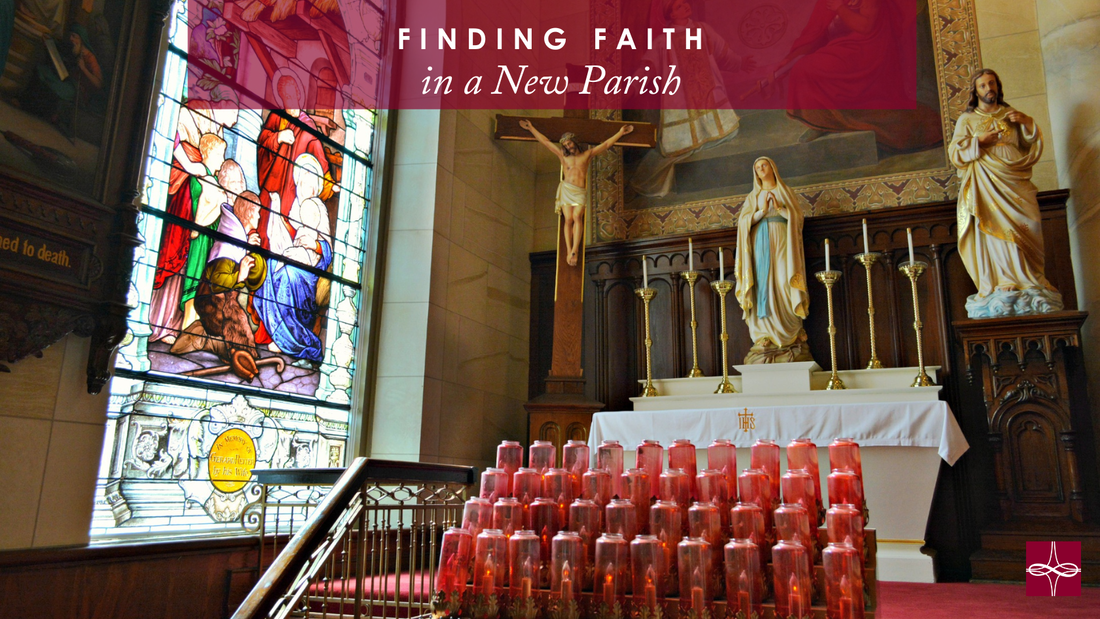


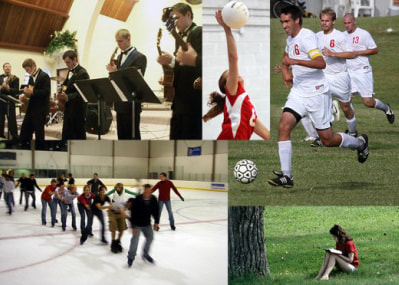
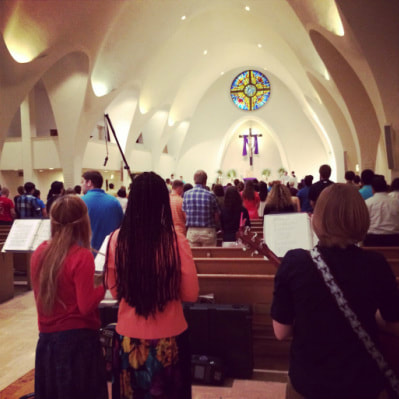



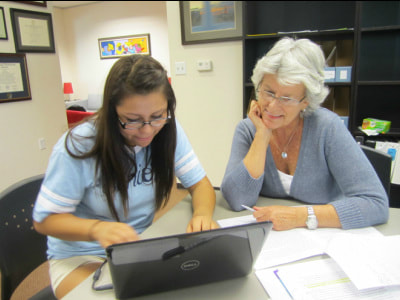
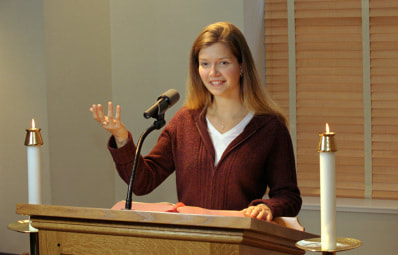
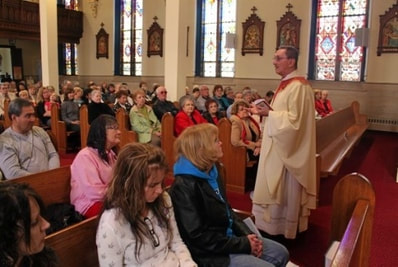
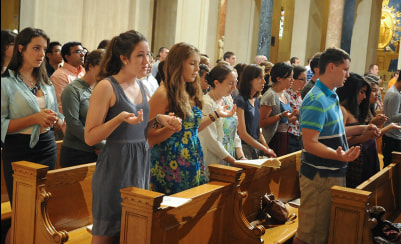

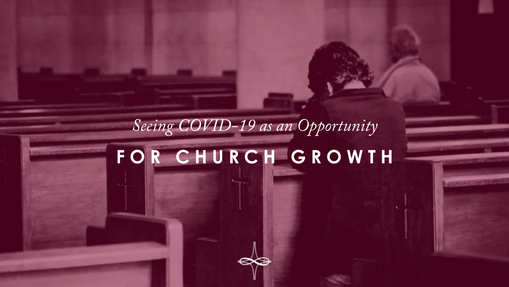



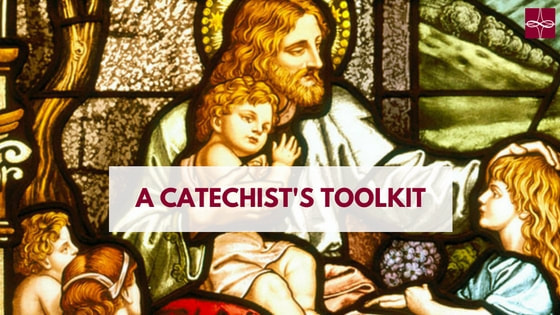





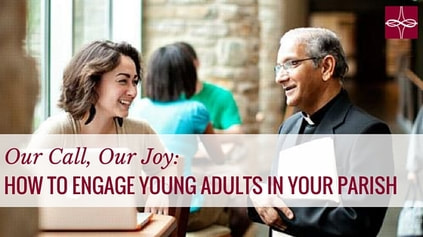

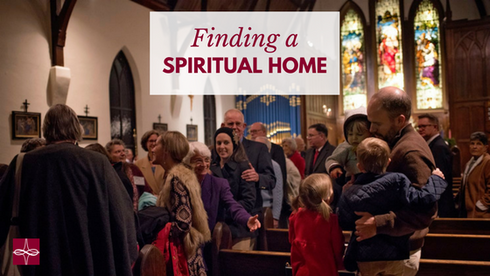

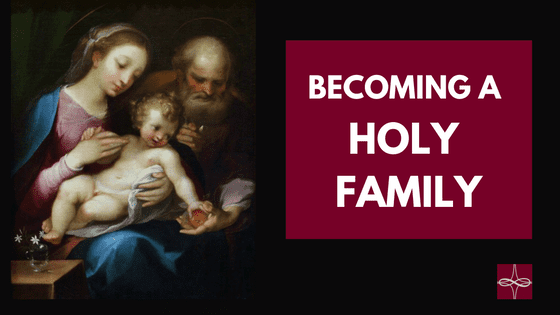

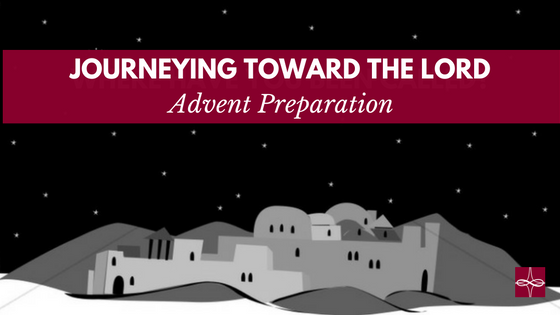
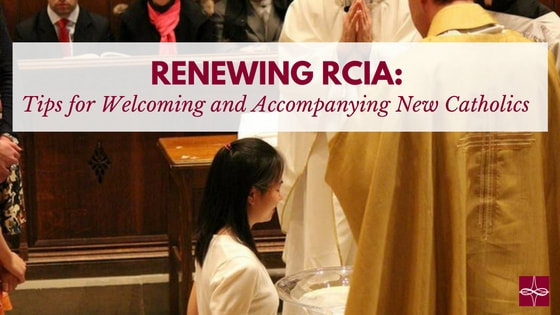

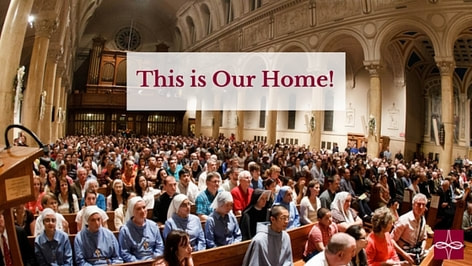





 RSS Feed
RSS Feed